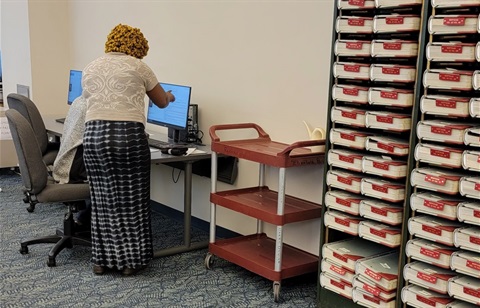Redaction of Unlawful Restrictive Covenants & Personal Information

Public help can help eliminate discriminatory practices of the past & help eliminate personal information, too.
Americans recognize eleven months that celebrate our nation's great diversity. These month-long celebrations encourage reflection upon advances resulting in the elimination of discriminatory laws and unfair practices in our nation’s past.
An example of these discriminatory laws and practices are restrictive covenants found in Deeds, HOA and Condominium documents. Restrictive covenants have their uses, dictating colors and styles of homes, parking, home based businesses, fences, etc. However, when the restrictions dictate the types of people who can live there, they have been unenforceable since a 1948 Supreme Court decision and illegal since the Fair Housing Act of 1968.
Many states – Delaware included – passed laws that prevent the recording of property documents discriminating against people for race, color, creed, religion, sex, sexual orientation, gender identity, disability, age, marital status, familial status, source of income, national original, ancestry, or housing status. (9 Del C. 41 §9605(b)).
In 2018, in concert with the NCC Recorder of Deeds, Delaware lawmakers provided a way to redact and strike discriminatory language from older deeds and other property records. (9 Del C. 41 §9628)
While these covenants are now illegal, they can be shocking and hurtful when owners discover them in deeds or HOA/Condominium paperwork. Removing this illegal language does not change history, because only the illegal restrictive covenants are removed vs all references to race, gender, religion and the like. In addition, the law advises that the redactions will only happen in the public-facing online databases, not in the record copies in our office, in our historic books, or in the Delaware Public Archives. The redaction will, however, amend the online chain of title moving forward so that the language found therein complies with State Law.
By law, the redactions will only take place upon the request of the current owner.
With over 6,000,000 documented pages already recorded and 2,000 new multi-page documents added a month, the Recorder of Deeds office does not have the staff to proactively seek out and eliminate illegal language. And the Law does not make it the Recorder's responsibility. The responsibility lies with whomever sees the illegal language to point it out to the Recorder who will, in turn, seek the current owner's request for redaction.
Therefore, we invite the public--the current property owners and others who review public deeds documents--to help us by bringing it to our attention using the form we designed for this purpose. You will also find a HOW TO guide(PDF, 665KB) for searching out illegal restrictive covenants as well as a Q & A which addresses questions most asked about this subject by the general public. Finally, you will find press coverage of the topic both locally and nationally. Kent County is not the first to ask for the public's help. If the form is filled out by someone other than the owner, we will send the form to the owner for review, and ask them to write "please redact" and sign and print their name along with the date.
Please get in touch with the Recorder of Deeds at Eugenia.Thornton@KentCountyDE.gov or call (302) 744-2321 to learn more or to volunteer to help with this project.
In addition, some recorded documents may contain personal information such as driver's license, passport numbers, taxpayer ID, alien registration numbers, etc. Delaware Law allows us to redact and strike these types of personal information as well. Here, instead of the currently owner's request, the Recorder will require the request of the person whose PII has been placed into the public eye. However, we will use the same form as for the Discriminatory Restrictive Covenants. As with illegal covenants, we will receive the form from the signer (or send the form to the signer of the documents to ask permission before redacting), in accordance with the law which you can read here. (9 Del C. 41 Section 9627)